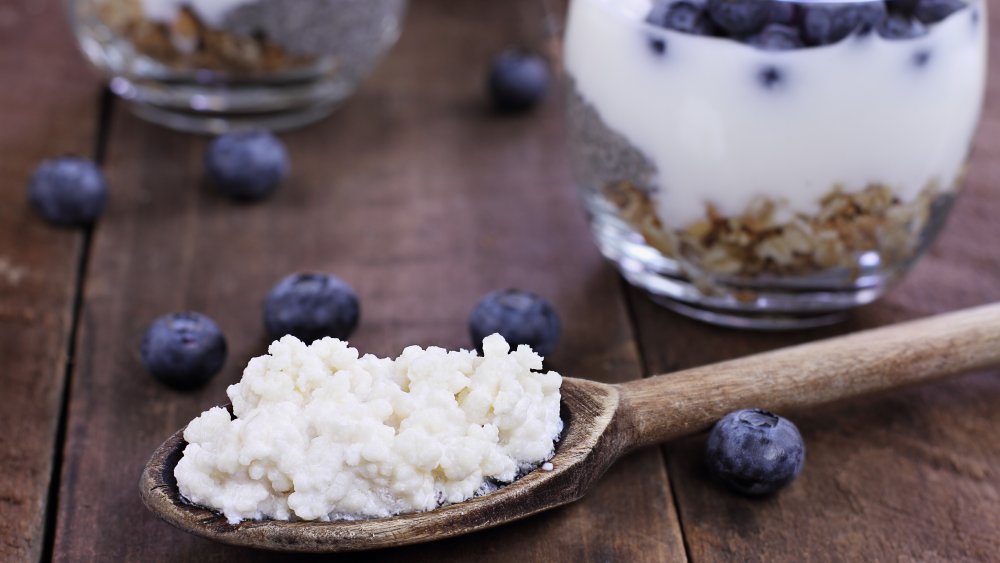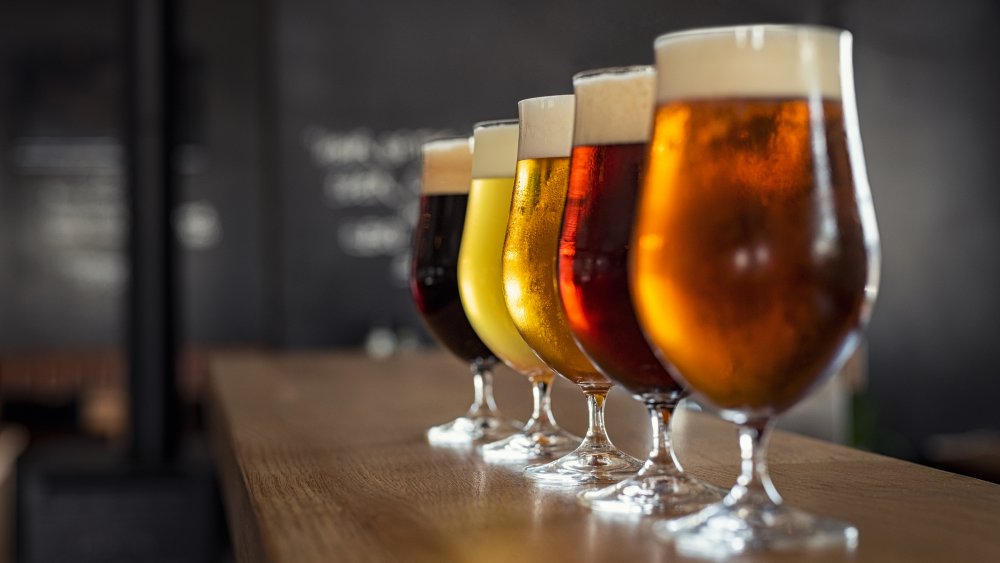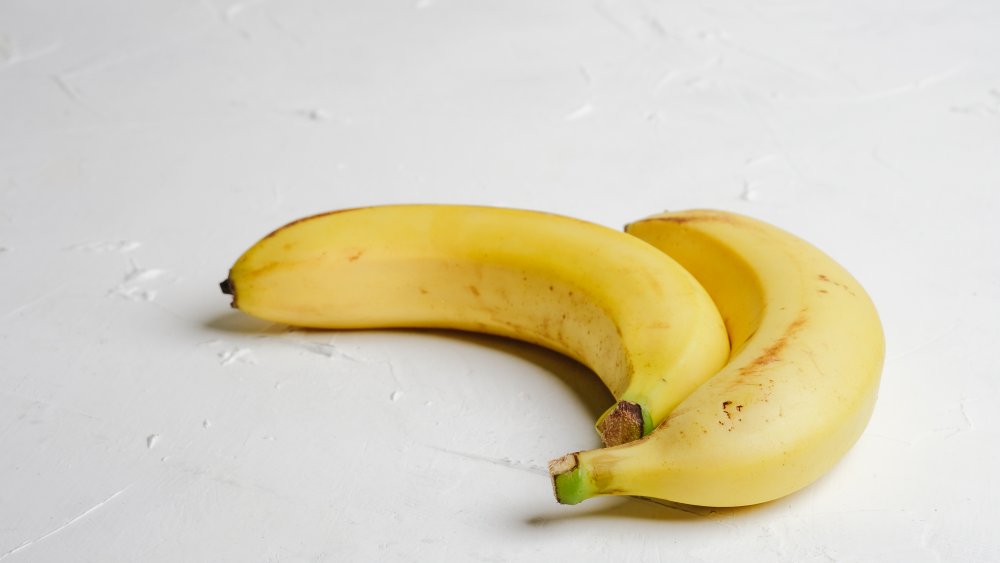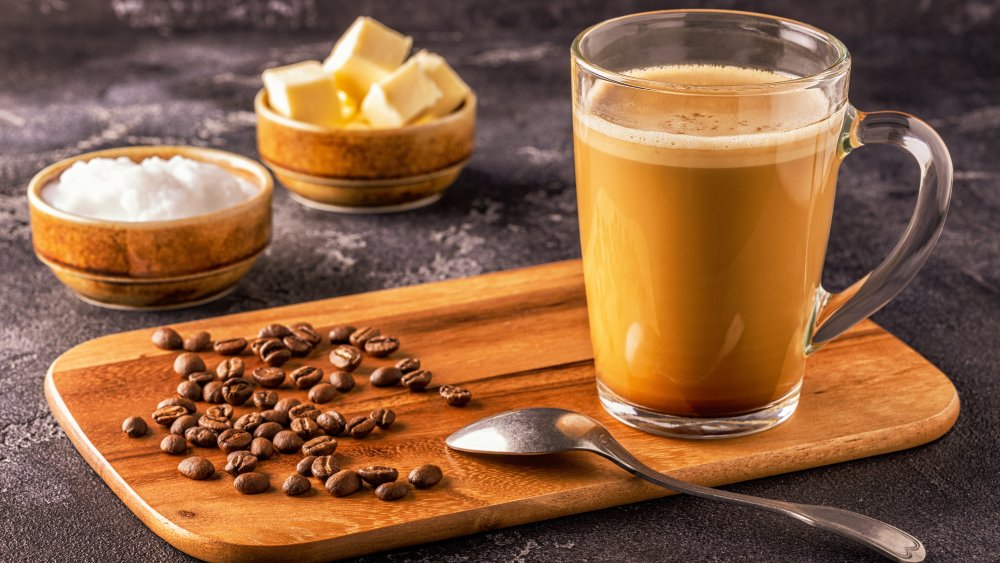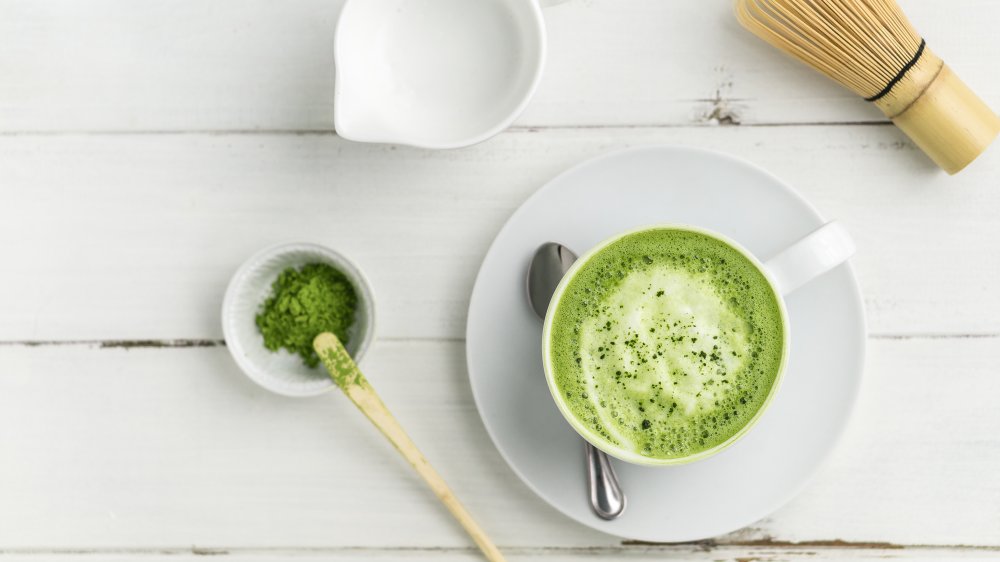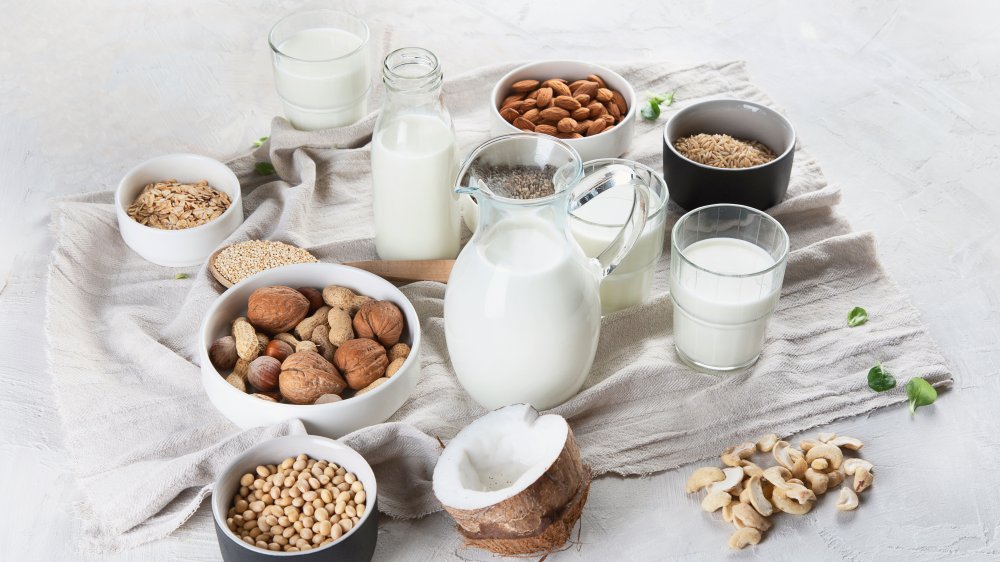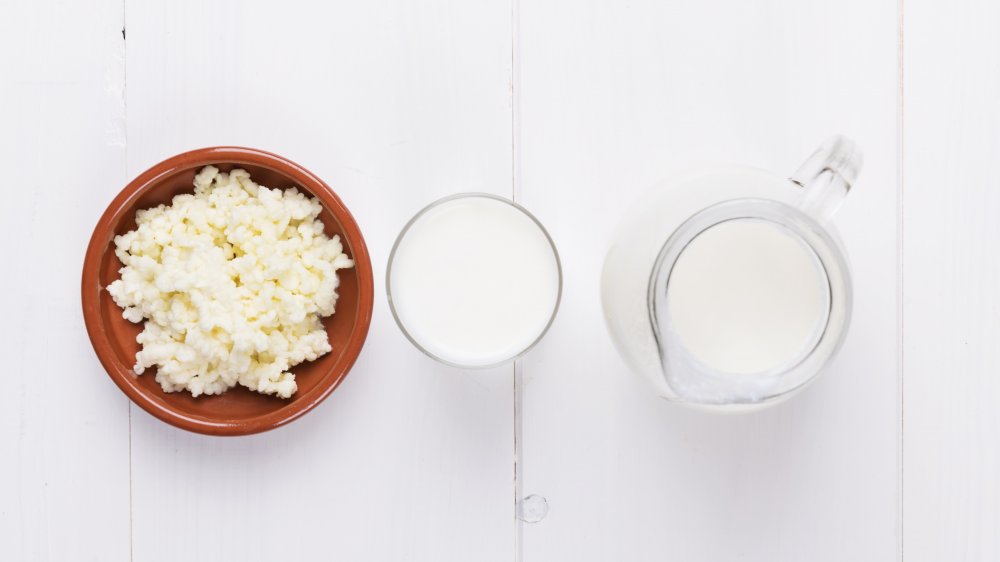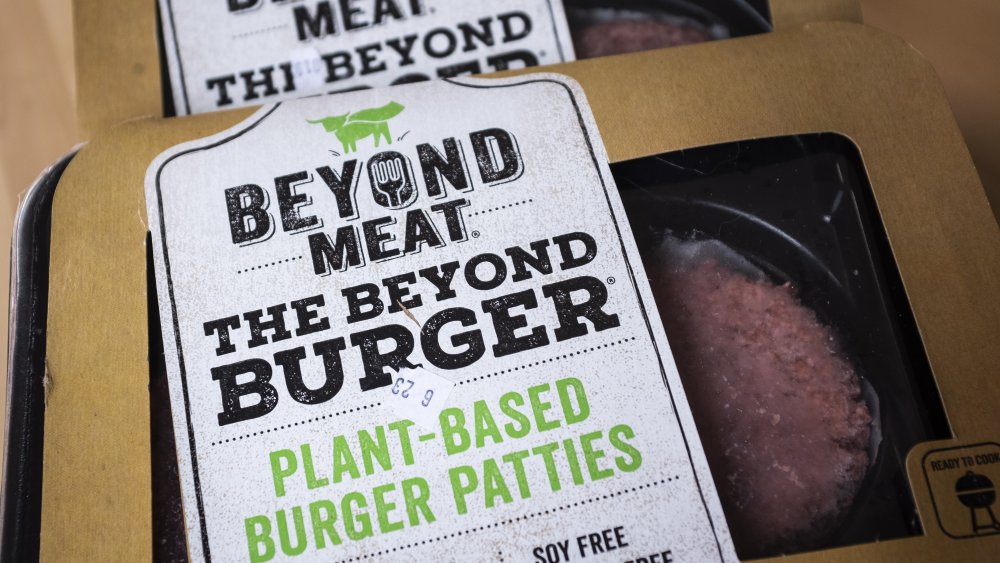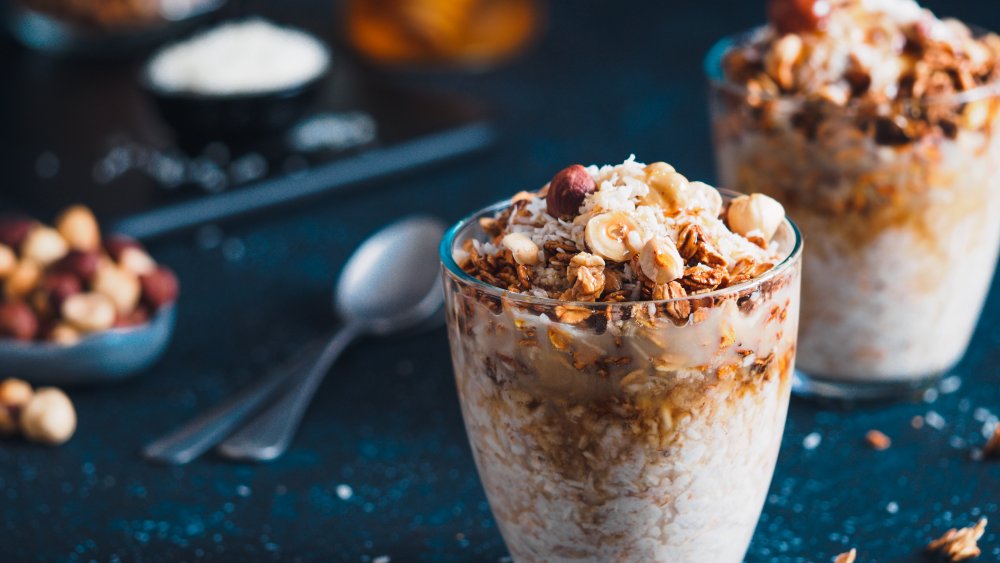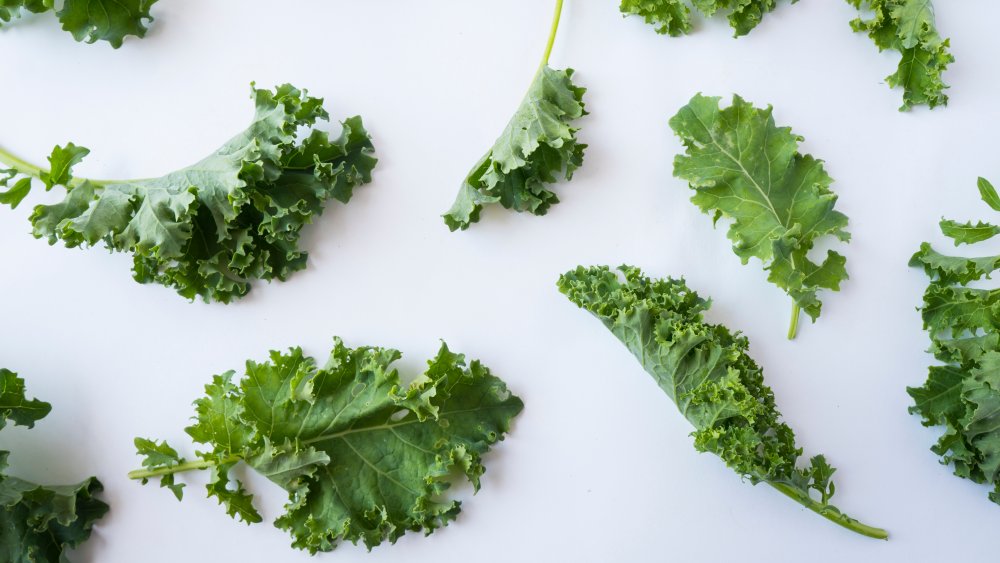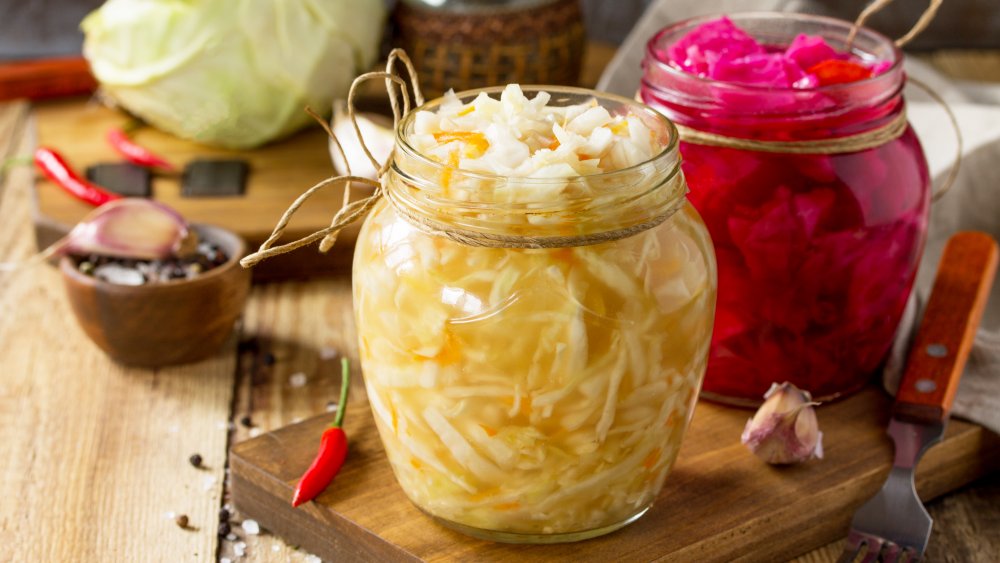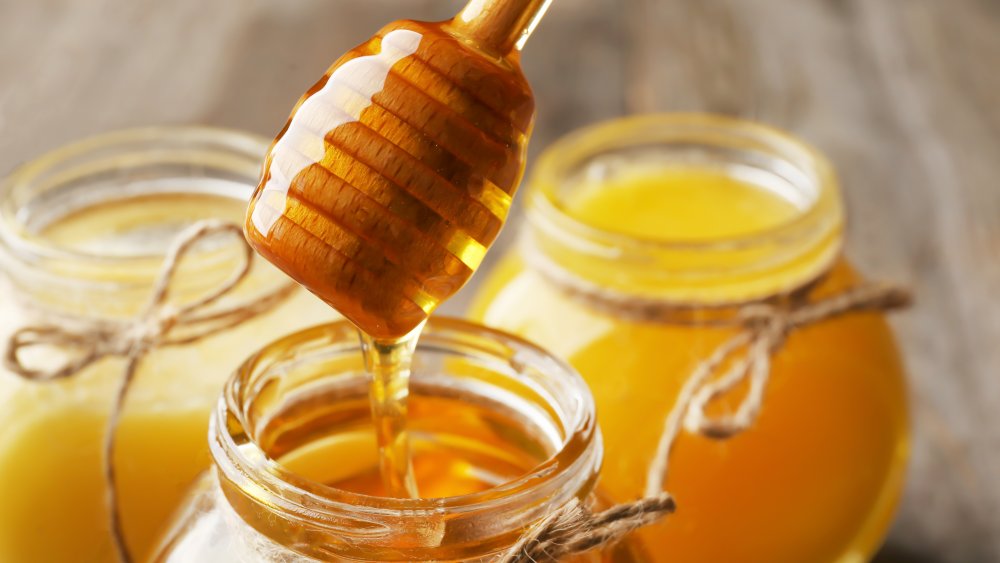We Ate These Foods Every Day For A Week And This Is What Happened
The culinary world is a crazy, ever-changing place. It seems like it's at least once a week that something pops up in your social media news feed, letting you know about the latest food trends or hottest additives said to help you feel better, stronger, healthier, or more awake. Is there really anything to the claims? It's tough to tell sometimes... who has the time or the dedication to try them out?
We do! We, your friendly neighborhood writers and foodies at Mashed, decided we were going to take on a challenge: try some of these foods — trendy, healthy, or otherwise — for a week, and see what happened.
Would it make us feel more awake through the late afternoon blues? Would it really help with digestion, and keeping things running smoothly? (Yes, dear reader, for you we're going to be that honest.) Would it have surprising consequences, like terrible breath? (We'll admit it. Sometimes: yes.) And was it doable? Could we really eat things like meat substitutes and kale without being bored to tears? Well, here's how it all worked out.
Beer
Beer! Beer is brilliant, especially on a hot summer's day. And even better, studies have shown that regularly partaking in a beer or so a day can have some amazing health benefits. According to Piedmont Healthcare, beer could help protect you against kidney stones and lower your chances of suffering a heart attack or stroke. While we can't speak to any of those long-term claims, we can say that some of the other claims completely held up, especially the idea that a beer a day can help reduce stress.
There's something relaxing about popping the top of a can, or the cap of a bottle. Since we opted for our daily beer during dinner prep time, we realized that by about Wednesday, the sound of an opening beer was a sort of signal that made our brains disconnect from the day. Work? The real world? That's behind us, and it's time to relax now. It's beer time!
We also found that there was a bit of a side effect we hadn't been expecting: it helped us eat less. Even one beer is more filling than, say, sipping a lemonade while you're cooking — especially when we made that beer a Guinness. By the time we got around to dinner, we just didn't feel like eating as much, and could opt for one scoop of mac-and-cheese instead of two. After a week of a daily beer, have we kept it up? You betcha.
Bananas
Bananas are one of the simplest fruits to eat. Truly, grabbing a banana to pair with breakfast, or eating it as a mid-morning snack on the run couldn't be easier. And let's face it, bananas are also delicious additions to smoothies, granola bowls, and more, so incorporating this bright yellow piece of produce on the daily isn't all too difficult.
Bananas are chock-full of potassium, usually coming in over 400 milligrams for a medium banana. And because potassium helps with regulating your body's fluid, works to keep your nerve signaling from the brain to your body going as it should, and helps with normal muscle contractions, getting between 3500 and 4700 milligrams per day is pretty important.
Bananas are also super hydrating, leading to giving you more energy. And that's the effect that was felt most after enjoying a banana every day for a week. Thanks to the natural sugars and good carbohydrates found in bananas, in addition to vitamin B6, eating a banana made it feel like there was more time left in the day to get things done. Eating a banana with breakfast every morning definitely made a difference, leading to a clearer mind and an increase in productivity.
Bulletproof coffee
We already know what happens when you drink espresso every day — it's generally healthy so long as you don't overindulge. But what about Bulletproof coffee, the high-calorie coffee drink that's used by many as a breakfast replacement? According to the Bulletproof Coffee company, the drink works because MCT oil can raise your body's ketone levels while grass-fed butter is a good source of butyrate, vitamin A, beta-carotene, and the fatty acid CLA. Combine those ingredients with antioxidant-rich coffee, and they say the drink will give you "clean-burning energy" for hours.
So we gave it a try, brewing a cup of coffee every morning and blending it with two tablespoons of grass-fed butter and one tablespoon of MCT oil. The drink was thin, but it somehow reminded us of a milkshake (maybe because it contains a ton of fat?). We found ourselves pretty ravenous by the time lunch came around — especially the first few days — but felt like we had slipped into a routine by the end of the week. When the week was over, we were pretty excited to eat solid food for breakfast again, and we can't say we'd want to drink Bulletproof coffee every day for the rest of our lives. But, we did notice that it gave us a bigger energy boost in the morning as compared to drinking plain coffee, so we might use it as a tool to get through particularly busy days.
Matcha
Matcha is one of those trendy things that it's easy to assume is blown way out of proportion. But, according to Healthline, there's some serious benefits associated with it. It's been found to be high in antioxidants, and to promote heart health. While a week of drinking it wasn't enough to allow us to speak to those benefits, there are a few things we did learn.
First, it's much easier to do than you might think. Mix some powder into your morning smoothie, or swing by just about any coffee shop and you'll be able to get your fix. And we found that sticking to a matcha morning was incredibly beneficial.
Why? Matcha, it turns out, contains something called L-theanine. And that's a big deal — it changes the way caffeine reacts in the body, and by day four, we totally noticed it. You know how your morning coffee tends to wear off by the afternoon? You start to feel sluggish and dopey, and you need either a nap or another coffee? That didn't happen with our mid-morning matcha! It was a sneaky effect that was difficult to notice, but it was definitely there: it didn't necessarily make us feel more awake, but we didn't feel like we were hitting the brick wall of afternoon snoozies, either.
Oh, and you know what else was great? We doubled up on one day: Saturday. In addition to our morning matcha smoothie, we had a matcha milkshake for dessert. It was delicious, and proved there are many ways to get your matcha fix every day.
Dairy-free
We know, this sounds absolutely wild. Especially for those die-hard cheese lovers or those who need their favorite creamer in that morning cup of coffee, giving up dairy would be the last thing you'd want to do for an entire week. But it happened.
In some ways, giving up dairy really isn't all that difficult, especially with so many great dairy substitutes on the market today. Subbing milk or cream in the morning coffee was pretty simple to accomplish with non-dairy creamer. For someone who eats cheese all the time, this might be the hardest part, but it's just a matter of going cold-turkey and trying it out. Along the way, opting dairy-free for a week definitely showcased that there's literally dairy in everything. It's everywhere. So, eliminating it from your diet makes you far more mindful about everything else you're consuming.
The main change noticed after going dairy-free for a week was almost-immediate weight loss. It was like paying attention to anything else being consumed, nutrition labels, etc. didn't matter because eliminating dairy was doing enough to cut back on calories, fats, and carbohydrates. After all, most dairy is full of sugar and fat. Was it a dramatic weight loss strategy? No. But omitting things like cheese, creamer, and ice cream certainly has the potential to go a long way if you're hoping to shed a few pounds.
Kefir
You might not be familiar with kefir — a fermented milk product that's been popular for years in Eastern Europe and Southwest Asia. Kefir grains (colonies of yeast and lactic acid bacteria) are added to milk, fermenting the lactose sugars. They basically turn the milk into a thicker concoction that's similar to sour yogurt. As people have come to realize the health benefits of this incredible beverage, kefir's popularity has risen in the West, especially in the United States. It's said to be a good source of nutrients, and it contains more probiotics than yogurt.
You can find kefir at the grocery store (Nancy's Yogurt is a popular brand), or you can make your own by ordering kefir grains from Amazon. It definitely took us a few days to get used to the very sour flavor. We're used to the flavor of thick, creamy yogurt, and the thin consistency and sharp, acidic taste was a bit of a shock. The flavored versions were definitely easier to drink on their own, and we started blending the unflavored stuff with fruit before drinking it. When we drank our six-ounce daily portion straight, we found it stimulated our appetite. We'd drink a glass first thing in the morning and were filled with ravenous hunger an hour or so later! But when blended with fruit and nuts in a smoothie, it was perfectly filling. We also noticed that kefir seemed to promote regularity in the bathroom, something we've never noticed after consuming yogurt daily.
Meat substitutes
There's a lot of reasons a person might decide to go completely (or at least partially) vegetarian, but we still had a bit of a bad taste about the whole idea, largely because of those horrible frozen veggie burgers that were the only option once upon a time. Have things gotten better? Can a carnivore go comfortably meat-free, and feel satisfied?
Absolutely! We started out by picking up a week's worth of "meat" at the store, and yes, we did this for all meals. And it's absolutely possible: from vegetarian sausages for Saturday morning breakfasts to tofu, we got it all.
We admit there was a bit of a learning curve. Not all meat-free products are created equal, and some (we're looking at you, Quorn mince) are delicious in some applications (chili), but not in others (tacos). It's definitely a texture thing, and while there were a few fails (we were still hungry after the taco fail, and filled the hole with a pint of ice cream sorry-not-sorry), there was a lot we were pleasantly surprised about.
Put a Beyond Burger next to a regular meat burger, and we'd be happy with either. Veggie sausages and hot dogs had the same snap and general texture, so it totally worked, and the biggest surprise? Jackfruit. We still haven't come to grips with the sheer weirdness of it. Did we get bored? Not at all. Did we miss meat? A little bit — but we found that it was definitely doable.
Oatmeal
Oatmeal is definitely one of those breakfasts you might have dreaded as a kid, but we're adults now... most of the time... so we're fans. We went for a bowl of oatmeal (the real deal, steel-cut oats) every morning. There's supposed to be a lot of good things that you get from oatmeal — Healthline says it's chock full of vitamins and nutrients, it'll protect you from bad cholesterol, and can help balance blood sugar levels.
So, what did we find?
Firstly, making oats from scratch every morning is a royal pain. Overnight oats, though, are a total win. Once we started making breakfast at night, it was super easy to just open the fridge and go. It actually made committing to breakfast a lot easier, especially since we could add some serious variety throughout the week. It didn't get nearly as boring as we thought it might, and even better, it kept us feeling full until lunchtime and occasionally beyond. While we weren't up for skipping lunch, we definitely didn't get that "counting down with the microwave timer" feeling, either.
By the end of the week, we'd gotten into the swing of things. We'd perfected the oat-to-milk-and-goodies ratio, and we started actually looking forward to our morning oatmeal. Variety was key: how was that peanut butter going to taste? Chocolate chips are legit healthy, right? It turns out, the key to getting yourself to eat breakfast is making it fun, and oatmeal is surprisingly fun — even if you eat it every day.
Kale
Kale is one of those superfoods that has gotten trendier and trendier every year. Before 2012, this leafy green was used as decoration on salad bars and food displays. Today, it's massaged and used instead of lettuce in salads, baked or fried to make low-carb chips, and folded into desserts. As kale-lovers, it wasn't hard for us to want to eat kale every day for a week. And since it's one of those fruits and vegetables that last the longest (up to two weeks when properly stored), there was no reason not to stock up when we went to the grocery store.
When we got home, we washed and chopped the kale into bite-sized pieces, storing it in a plastic bag so it'd be ready to use every day. The easiest way to eat it would have been blending it in our morning smoothie, but we didn't want to hide it. So we tossed a cup of kale leaves into our lunch every day, reheating it with leftovers or massaging it and eating it raw. While we didn't magically become healthier at the end of the week, we did feel pretty good. We also noticed that the kale's protein and fiber content made it really filling. That meant we could eat less for lunch and feel just as satisfied.
Sauerkraut
The German word "sauerkraut" translates to "sour cabbage," which is a pretty good description of the product itself. It's made by tossing chopped cabbage with salt, which draws the liquid out of the cabbage. The liquid protects the vegetable from bacteria as it sits for four to six weeks until the cabbage is fully fermented and preserved. From there, it's ready to eat, and it will last for about six months in the refrigerator. It's not only an easy way to preserve excess cabbage, but the fermentation process also adds several health benefits. It's supposed to aid digestion and boost the immune system.
Things went well for the first few days. We added about an ounce of raw sauerkraut to whatever we were eating — sandwiches, salads, or our breakfast eggs. There wasn't a noticeable difference for the first day or two, but we started feeling pretty gassy and bloated by day three. By the end of the week, we were relieved that the experiment was over. We like the taste of sauerkraut, but it got to be too much to eat it every day. Plus, we were told that our breath smelled bad after eating sauerkraut, so this definitely wouldn't be an experiment to undertake with a new significant other!
Sauerkraut may be a healthy food, but according to us, it's not for daily consumption.
Raw honey
We have bees to thank for honey, as they do the work to produce it. Bees harvest nectar from nearby plants, digest it, and basically spit it back out onto honeycomb. From there, humans collect what's in the honeycombs, and bottle sweet, sweet honey.
The beauty of honey is that it's delicious, and it's certainly not hard to add it to your daily diet. One of the best ways to enjoy honey is by adding it to yogurt with granola on top, creating the perfect at-home parfait. Honey is also a great topping for cereal or toast, or in smoothies or tea. But it's not just a tasty treat. Honey is known for being super high in antioxidants, reducing blood pressure, and maybe even improving your skin. But the main benefit we found in consuming honey every day for a week was the way it helped with pesky allergies.
Utilizing local honey, it made an obvious difference in clearing up that annoying sniffy nose and watery eyes. As it turns out, consuming honey from bees who have actually harvested nectar from the same plants you're allergic to can be a total game-changer. It hasn't been scientifically proven to be effective just yet, but the logic seems to make sense — and for us, it seemed to do the trick. For example, if you're having allergy issues due to blooming apple trees, trying honey from bees that harvested from local apple trees might just do the trick. Plus, honey coats your throat as well, leaving it feeling good, allergies or not.
